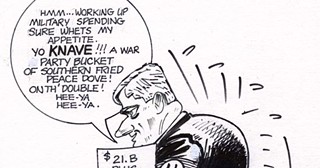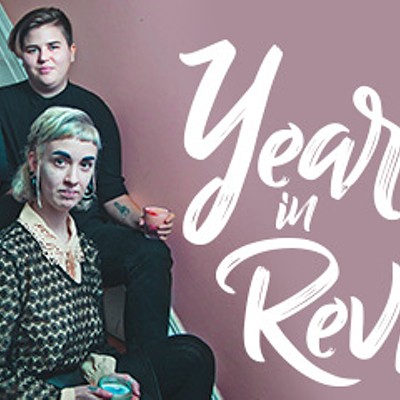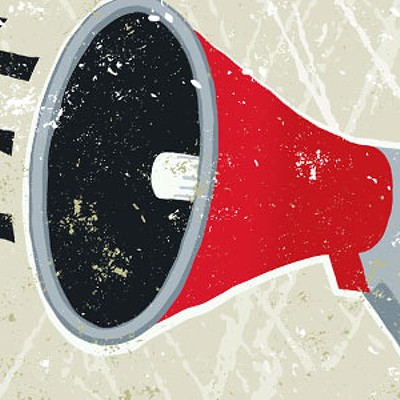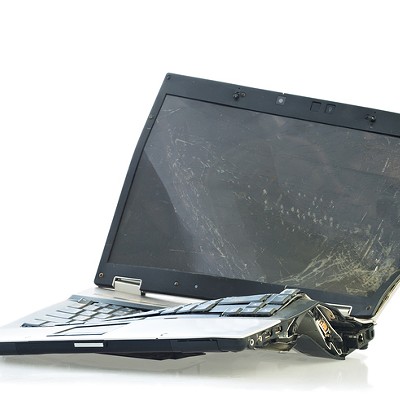Building a culture of peace may seem like an impossible dream when rich nations are spending billions in Afghanistan waging war on the world's poorest people, all in the name of self-defence. Yet participants at a conference this week at Mount Saint Vincent University know full well that discussing ways of building a culture of peace is not only an urgent priority, it also makes sense. As Ursula Franklin, one of the leading thinkers of the Canadian peace movement writes, "War does not work, not even for the warriors."
US soldiers expressed that idea less politely during the Second World War when they coined the acronym snafu: situation normal, all fucked up. Those jaded soldiers also knew that wars are chaotic and rarely unfold as planned, thanks in part, to the inept arrogance of military leaders. Think of former chief of defence staff Rick Hillier, architect of Canada's expanded fighting role in Afghanistan. Hillier confidently dismissed Afghan resistance fighters as "detestable murderers and scumbags," adding blithely, "We are the Canadian Forces, and our job is to be able to kill people." That was in 2005. Two weeks ago, American general David Petraeus, who now leads US and NATO forces, admitted that after nine years of war, "We cannot kill or capture our way out of an industrial-strength insurgency like that in Afghanistan."
Petraeus's now-disgraced predecessor, Stanley McChrystal, complained in March that NATO soldiers firing from military convoys and at checkpoints were killing so many civilians that Afghans were increasingly siding with the Taliban. "We have shot an amazing number of people, but to my knowledge, none has ever proven to be a threat," McChrystal lamented during a question and answer session with soldiers. As the New York Times observed in its report on his remarks, even larger numbers of Afghan civilians are being killed in NATO air strikes and special forces operations.
The futility of the war in Afghanistan has been plain for years, yet that hasn't stopped Canadian politicians from recklessly pumping in billions. In a report issued last December by the Canadian Centre for Policy Alternatives, military analyst Bill Robinson calculated that so far, Canada had spent 12 to $15 billion on the Afghan war, money that could have gone to peacekeeping instead of war making. Robinson noted that this year, Canada will allocate a total of more than $21 billion to its armed forces. That's a higher level of spending than at any time since the Second World War. It places Canada among the world's top 15 military spenders and sixth highest among the 28 members of NATO. At a time when we face imminent catastrophe because of global warming, the government spends 20 times more on the oil-guzzling military than on the federal department of the environment.
Yes, talking about building a culture of peace makes sense in the face of such madness. As Ursula Franklin points out, peace is not just the absence of war, it's also the absence of fear. She argues that governments, acting on behalf of global corporations, have established what she calls a "threat system" to control citizens by instilling economic uncertainty and fear---fear of joblessness and poverty, for example, as corporations move work to low-wage countries and governments cut unemployment insurance benefits and social programs.
Franklin maintains that only social justice can overcome fear and bring peace. Justice means freedom from coercion and fear, but it also means equality. The victims of US remote-controlled bombing in Pakistan are no less worthy than the victims of the 9/11 attacks. The Ogoni people in the Niger Delta who have endured oil spills the size of the Exxon Valdez one every year for the last 50 years, are no less victims than the hundreds of thousands losing their livelihoods because of the BP oil gusher in the Gulf of Mexico.
Yes, now is definitely the time to talk about building a culture of social justice and peace.
Bruce Wark is participating on a Friday afternoon panel at the conference that will discuss ways of communicating messages of disarmament and peace. See msvu.ca/peaceconference for more information.

















